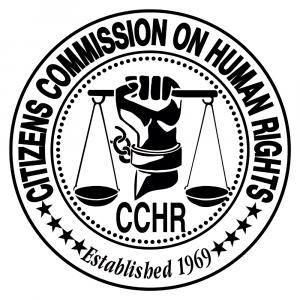
National Suicide Prevention Month: Should Antidepressants Be Routinely Listed as a Risk Factor for Suicide?

Antidepressant use in the U.S. has increased 32% since 2006, which parallels a 35% increase in suicides over the same period.
Consumers have a right to know that antidepressants can cause suicidal thoughts and actions. Without knowing this, they cannot make fully informed decisions.
WASHINGTON, DC, US, September 9, 2021 /EINPresswire.com/ -- After decades of research showing the link between antidepressants and suicide, and even after the FDA required antidepressant labels to carry a black box warning of the increased risk of suicide for children and young adults, key government suicide prevention websites still fail to list antidepressant use as a risk factor for suicide – an omission that could be costing human lives.
Consumers look to authoritative sources like the National Institute of Mental Health (NIMH), the Centers for Disease Control and Prevention (CDC), and the Substance Abuse and Mental Health Services Administration’s (SAMHSA) Suicide Prevention Resource Center for information on suicide and suicide prevention.
While these entities list specific “risk factors” for suicide, none include the known risk of suicide that comes from taking the antidepressants routinely prescribed for depression. Addressing the risk only indirectly, the NIMH on its webpage about antidepressants does urge those taking the drugs to call their doctor right away if they experience side effects that include “thoughts about suicide or dying, attempts to commit suicide, [or] new or worsening depression.”
These websites should follow the lead of the FDA website, which does list “suicidal thinking” as one of the “serious risks” of antidepressants.
A search for the term “antidepressant” in the Citizens Commission on Human Rights (CCHR) psychiatric drugs side effects database currently returns 33 drug studies and 39 international drug regulatory agency warnings concerning the increased risk of suicide, suicidal ideation, suicidal behavior, suicide attempts and completed suicides for children and/or adults taking antidepressants.
In 2000, psychiatrist and professor of psychiatry David Healy published the results of his study of 20 healthy volunteers with no history of depression who were given a selective serotonin reuptake inhibitor (SSRI) antidepressant: two of them became suicidal, despite no prior depression.
That study inspired Andreas Beilefeldt and a team of researchers more recently to conduct an extensive and systematic analysis of clinical trials in which SSRI and SNRI (serotonin and norepinephrine reuptake inhibitor) antidepressants were given to healthy adult volunteers with no signs of depression. The unequivocal conclusion, published in 2016, was that “antidepressants double the risk of suicidality and violence.”
In a nod to another risk of suicide from antidepressants, the researchers also note: “…it is well known that the suicide risk is high when an antidepressant is stopped abruptly.”
A black box warning label on antidepressants was first required by the FDA in 2004 to warn of the increased risk of suicidal thoughts and actions in children and adolescents. The action came after drug trials found that children taking antidepressants were almost twice as likely to have suicidal thoughts or to attempt suicide than children receiving placebos. The warning was expanded in 2007 to include young adults through age 24.
In response to critics’ continuing complaints that the black box warning led to more suicides because children were not taking the drugs, researchers lead by professor of psychology Glen I. Spielmans, Ph.D, recently re-analyzed data from clinical trials to see if that was true. Their study, published in 2020 in Frontiers in Psychiatry, concluded that the warning of increased risk of suicidal thoughts and actions in children and young adults is clearly justified.
Providing more evidence that the rise in child suicides is linked to the rise in the number of children on antidepressants, the researchers wrote: “More recent data suggest that increasing antidepressant prescriptions are related to more youth suicide attempts and more completed suicides among American children and adolescents.”
Antidepressant use has risen significantly over the past 15 years, and so have suicides. In 2020, some 45 million Americans – roughly one in seven – were taking antidepressants, up from 34 million in 2006, for a 32% increase in the raw numbers (not adjusted for population growth). This parallels the 35% increase in suicides in the United States over the same period, rising from 33,300 in 2006 to 44,800 in 2020 which, due to the impact of COVID-19, is less than the even greater 47,500 suicides in 2019.
Of particular concern is the rising number of child suicides in the U.S. over that period. Antidepressant prescriptions written for children under the age of 18 rose to nearly 2.2 million in 2020, up from 1.4 million in 2006, reflecting a 50% increase. Shockingly, over 41,000 children age 5 and younger are being prescribed antidepressants, including roughly 3,200 infants under the age of 1.
Consumers have a right to know about the risk of antidepressants causing deepening depression and suicidal thoughts and actions. Without this vital information, they cannot make fully informed decisions about their mental health treatment.
We call on the CDC, the NIMH, and SAMHSA’s Suicide Prevention Resource Center to correct this omission and add the use of antidepressants as a risk factor for suicide.
CCHR has also long recommended that individuals experiencing depression should ask their physician for a complete physical examination with lab tests to discover any underlying physical conditions that could be causing the mental symptoms that would otherwise be misdiagnosed as mental disorders. Many prescription drugs, including antidepressants, are known causes of depression, and a physician should re-evaluate whether to continue prescribing the drugs.
WARNING: Anyone wishing to discontinue an antidepressant is cautioned to do so only under the supervision of a physician because of potentially dangerous withdrawal symptoms.
CCHR was co-founded in 1969 by members of the Church of Scientology and psychiatrist Thomas Szasz, M.D., to eradicate abuses and restore human rights and dignity to the field of mental health. Since then, CCHR has helped obtain more than 180 laws that protect mental health patients.
The CCHR National Affairs Office in Washington, DC, has advocated for mental health rights at the state and federal level. The CCHR traveling exhibit, which has toured 441 major cities worldwide and educated over 800,000 people on the history of abusive psychiatric practices up to the present time, has been displayed in Washington, DC, at the Congressional Black Caucus Foundation Annual Legislative Caucus and other locations.
Anne Goedeke
Citizens Commission on Human Rights, National Affairs Office
+1 202-349-9267
contact@cchrnational.org
Antidepressant Drug Warnings
EIN Presswire does not exercise editorial control over third-party content provided, uploaded, published, or distributed by users of EIN Presswire. We are a distributor, not a publisher, of 3rd party content. Such content may contain the views, opinions, statements, offers, and other material of the respective users, suppliers, participants, or authors.



